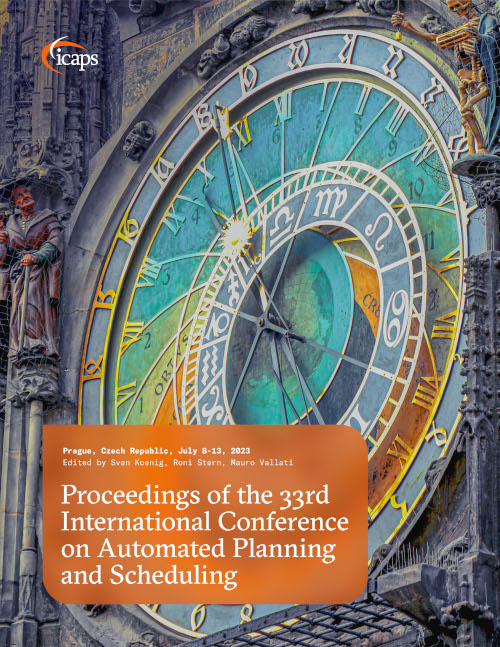Fixing Plans for PDDL+ Problems: Theoretical and Practical Implications
DOI:
https://doi.org/10.1609/icaps.v33i1.27210Keywords:
Plan and schedule execution, monitoring, and repair, Planning and scheduling with mixed continuous and discrete states/actions/decisions, Theoretical foundations of planning and scheduling, Knowledge representation for planning and schedulingAbstract
The plan, execution, and replan framework has proven to be extremely valuable in complex real-world applications, where the dynamics of the environment cannot be fully encoded in the domain model. However, this comes at the cost of regenerating plans from scratch, which can be expensive when expressive formalisms like PDDL+ are used. Given the complexity of generating PDDL+ plans, it would be ideal to reuse as much as possible of an existing plan, rather than generating a new one from scratch every time. To support more effective exploitation of the plan, execution, and replan framework in PDDL+, in this paper, we introduce the problem of discretized PDDL+ plan fixing, which allows one to fix existing plans according to some defined constraints. We demonstrate the theoretical implications of the introduced notion and introduce reformulations to address the problem using domain-independent planning engines. Our results show that such reformulations can outperform replanning from scratch and unlock planning engines to solve more problems with fine-grained discretizations.Downloads
Published
2023-07-01
How to Cite
Percassi, F., Scala, E., & Vallati, M. (2023). Fixing Plans for PDDL+ Problems: Theoretical and Practical Implications. Proceedings of the International Conference on Automated Planning and Scheduling, 33(1), 324-333. https://doi.org/10.1609/icaps.v33i1.27210

